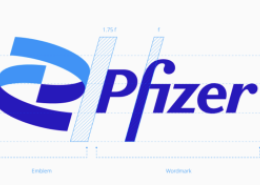FDA Advisory Committee Finds Data Support The Favorable Benefit-Risk Profile Of SUTENT® In Unresectable Pancreatic Neuroendocrine Tumors (NET)
(BUSINESS WIRE)--Pfizer Inc. announced today that the U.S. FDA Oncologic Drugs Advisory Committee (ODAC) voted 8-2 that SUTENT® (sunitinib malate) provides a favorable benefit-risk profile for the treatment of unresectable pancreatic neuroendocrine tumors (NET). The panel’s advice will be considered by the FDA when finalizing its review of Pfizer’s supplemental New Drug Application (sNDA) for sunitinib for this indication.
"We are encouraged by the panel’s favorable review of sunitinib for the treatment of unresectable pancreatic NET. Following today's discussion, we will work closely with the FDA to ensure that it has all of the information that it needs to finalize its review,” said Dr. Mace Rothenberg, senior vice president of Clinical Development and Medical Affairs, Pfizer Oncology Business Unit. “If approved in the United States, sunitinib would be a major advancement in the treatment of patients with pancreatic NET, a disease for which there remains a significant unmet medical need.”
In February 2009, the independent Data Monitoring Committee for the SUN 1111 trial recommended that randomization to the study be halted in the interest of patient safety and based on the very strong likelihood that the study would meet its primary endpoint if continued to completion. In the final analysis, it was demonstrated that sunitnib more than doubled median progression-free survival (PFS), the primary endpoint, compared with placebo in 171 patients with progressive, well-differentiated pancreatic NET. An advantage for sunitinib was also observed in the secondary endpoints of overall survival, objective response rate and patient reported outcomes.1
Adverse events observed with sunitinib were consistent with the known safety profile for the therapy.1
In Europe, as of November 2010, SUTENT is indicated for the treatment of unresectable or metastatic, well-differentiated pancreatic neuroendocrine tumors with disease progression in adults. Experience with SUTENT as initial treatment in this disease is limited.
SUTENT is currently approved for both gastrointestinal stromal tumors (GIST) after disease progression on or intolerance to imatinib mesylate, and advanced renal cell carcinoma (RCC), based on efficacy and safety data from large, randomized Phase 3 clinical trials. SUTENT has changed the treatment landscape for patients with advanced RCC and imatinib-resistant or intolerant GIST, and is a standard of care in these indications. SUTENT is approved for these indications in over 100 countries and has been studied in over 10,000 patients in clinical trials. To date, more than 100,000 patients have been treated with SUTENT worldwide.
About Pancreatic Neuroendocrine Tumors
Pancreatic neuroendocrine tumors are different from pancreatic adenocarcinoma, which account for about 95 percent of all pancreatic cancers2. Advanced pancreatic NET is a rare, life-threatening and difficult-to-treat form of cancer reported in two to four people per million annually worldwide,3,4 and accounts for approximately 22-28 percent of all neuroendocrine tumors.5,6 While pancreatic NET is typically considered an indolent disease, nearly 90 percent of patients are initially diagnosed with locally advanced or metastatic disease, or cancer that has spread to other organs.7 For patients with pancreatic NET that has metastasized, prognosis is poor, with a survival of only 1-3 years,8 similar to that seen with metastatic breast cancer or metastatic colon cancer.9,10
About SUTENT(®) (sunitinib malate)
SUTENT is an oral multi-kinase inhibitor that works by blocking multiple molecular targets implicated in the growth, proliferation and spread of cancer. Two important SUTENT targets, vascular endothelial growth factor receptor (VEGFR) and platelet-derived growth factor receptor (PDGFR) are expressed by many types of solid tumors and are thought to play a crucial role in angiogenesis, the process by which tumors acquire blood vessels, oxygen and nutrients needed for growth. SUTENT also inhibits other targets important to tumor growth, including KIT, FLT3 and RET.
Important SUTENT(®) (sunitinib malate) Safety Information
Hepatotoxicity has been observed in clinical trials and post-marketing experience. This hepatotoxicity may be severe, and deaths have been reported. It is recommended to monitor liver function tests before initiation of treatment, during each cycle of treatment, and as clinically indicated. SUTENT should be interrupted for Grade 3 or 4 drug-related hepatic adverse events and discontinued if there is no resolution. SUTENT should not be restarted if patients subsequently experience severe changes in liver function tests or have other signs and symptoms of liver failure.
Women of child bearing age who are (or become) pregnant during therapy should be informed of the potential for fetal harm while on SUTENT.
Decreases in left ventricular ejection fraction (LVEF) to below the lower limit of normal (LLN) have been observed. Patients with concomitant cardiac conditions should be carefully monitored for clinical signs and symptoms of congestive heart failure. Patients should be monitored for hypertension and treated as needed with standard antihypertensive therapy. Complete blood counts (CBCs) with platelet count and serum chemistries should be performed at the beginning of each treatment cycle for patients receiving treatment with SUTENT.
The most common adverse reactions in GIST, RCC and pancreatic NET clinical trials were diarrhea, fatigue, asthenia, nausea, mucositis/stomatitis, anorexia, vomiting, neutropenia, hypertension, dyspepsia, abdominal pain, constipation, rash, hand-foot syndrome, skin discoloration, hair color changes, altered taste and bleeding.
For more information on SUTENT and Pfizer Oncology, including full prescribing information for SUTENT (sunitinib malate), please visit www.pfizer.com [http://www.pfizer.com].
About Pfizer Oncology
Pfizer Oncology is committed to the discovery, investigation and development of innovative treatment options to improve the outlook for cancer patients worldwide. Our strong pipeline, one of the most robust in the industry, is studied with precise focus on identifying and translating the best scientific breakthroughs into clinical application for patients across a wide range of cancers. Pfizer Oncology has biologics and small molecules in clinical development and more than 100 clinical trials underway. By working collaboratively with academic institutions, individual researchers, cooperative research groups, governments, and licensing partners, Pfizer Oncology strives to cure or control cancer with breakthrough medicines, to deliver the right drug for each patient at the right time. For more information please visit www.Pfizer.com.
DISCLOSURE NOTICE: The information contained in this release is as of April 12, 2011. Pfizer assumes no obligation to update forward-looking statements contained in this release as the result of new information or future events or developments.
This release contains forward-looking information about a potential additional indication for SUTENT, including its potential benefits, that involves substantial risks and uncertainties. Such risks and uncertainties include, among other things, the uncertainties inherent in research and development; decisions by regulatory authorities regarding whether and when to approve supplemental drug applications that have been or may be filed for such additional indication for SUTENT as well as their decisions regarding labeling and other matters that could affect its availability or commercial potential; and competitive developments.
A further list and description of risks and uncertainties can be found in Pfizer’s Annual Report on Form 10-K for the fiscal year ended December 31, 2010 and in its reports on Form 10-Q and Form 8-K.
1 Raymond E, et al. Sunitinib Malate for the Treatment of Pancreatic Neuroendocrine Tumors. N Engl J Med 2011; 334: 501-13.
2 American Cancer Society. What is cancer of the pancreas? Available at: http://www.cancer.org/Cancer/PancreaticCancer/DetailedGuide/pancreatic-cancer-what-is-pancreatic-cancer. Accessed March 1, 2011
3 Ramage JK, Davies AHG, Ardill et al. Guidelines for the management of gastroenteropancreatic neuroendocrine (including carcinoid) tumours. Gut. 2005;54:iv1–16
4 Halfdanarson TR, Rabe KG, Rubin J et al. Pancreatic neuroendocrine tumors (PNETs): incidence, prognosis and recent trend toward improved survival. Ann Oncol. 2008;19:1727–33.
5 Pape UF, Berndt U, Muller-Nordhorn J et al. Prognostic factors for long-term outcome in gastroenteropancreatic neuroendocrine tumors. Endocrine-Related Cancers; 15: 1083-97, 2008.
6 Ter-Minassian M, Frauenhoffer CS, Hooshmand SM et al. Prospective analysis of clinical outcomes and prognostic factors in patients with Neuroendocrine tumors (NETs). ASCO Meeting Abstracts; Jun 14; 4044, 2010.
7 Yao JC, Hassan M, Phan A, et al. One hundred years after “Carcinoid”: epidemiology of and prognostic factors for Neuroendocrine tumors in 35,825 cases in the United States. J Clin ONcol; 26 (18): 3063-72, 2008.
8 Yao JC, et al. Population-based study of islet cell carcinoma. Ann Surg Oncol. 2007;14(12):3492–3500
9 Pal SK, et al "Lack of survival benefit in metastatic breast cancer with newer chemotherapy agents: The City of Hope cancer experience" ASCO Breast 2008; Abstract 95.
10 Kopetz S, Chang G, et al. Improved Survival in Metastatic Colorectal Cancer is Associated With Adoption of Hepatic Resection and Improved Chemotherapy. J Clin Oncol. 2009; 7:3677-3683.
Pfizer Inc.
Media:
Kristen Neese, 646-299-2526
or
Investors:
Jennifer Davis, 212-733-0717








